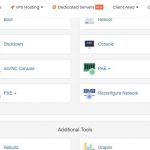The period we live in is known as the ‘Age of Information.’ It makes sense because the internet puts knowledge from the farthest reaches of the globe to our fingertips. Almost anything we want to know is only a few mouse clicks away. However, with so much information and data comes the issue of correctly discovering, accessing, and keeping it. The sheer volume of knowledge accessible on any given topic makes manual gathering nearly unfeasible.
Essentially, the difficulties of getting information resulted in the development of efficient, resilient, and programmable data collection methods. Web scraping tools are what developers name them.
This article looks at some of the numerous methods for gathering information on the internet. It will take you through some of the most prevalent online scraping applications as well as where the future of web scraping technology is headed.
What Are the Different Web Scraping Techniques?
Manual site scraping is obviously a time-consuming procedure. It requires a significant amount of time and work. As a result, most online scraping techniques are automated by developers using computer languages such as Python or Java. Here are some of the most prevalent methods used by automated web scraping applications to collect data:
HTTP Programming
Sending HTTP queries and extracting data from the answers is one of the more basic web scraping API strategies. It supports both static and dynamic pages and communicates using socket programming.
Parsing HTML
This approach entails navigating a website’s HTML code and structure to find relevant material and extract information. Query languages such as XQuery and HTQL allow scripts to parse HTML and get page content.
Text Pattern Recognition
Regular expressions are used by scripts in languages such as Python and Perl to match and retrieve material. Such languages feature sophisticated expression-matching capabilities, which need developers specifying the structure of the data to be scraped. The internet has a wide range of information.
It can be tabular or descriptive, numerical or non-numerical, static or constantly updated, and so on. With such stark disparities in appearance, it’s no wonder that several web scraping strategies exist. The ultimate plan is determined by your resources as well as considerations such as your acceptable margin of error.
What Are Some of the Most Popular Web Scraping Applications Today?
Website scraper technologies are used in a variety of industries and disciplines to acquire and structure data from the internet. The current surge in data science and data, in general, has resulted in an explosion in the use of web scraping technologies. After all, just making sense of data necessitates a large volume of data in the first place. The following are some of the most prevalent applications for web scraping tools:
Artificial Intelligence Models at Work
Artificial intelligence is one of today’s trendiest technologies. We utilize it for a variety of purposes. Prediction, analytics, and sophisticated academic research are examples of these. Data is at the heart of all AI models. Large volumes of data are used to train and fine-tune AI data models. As a result, the quality and amount of accessible data might influence the effectiveness of an AI model.
Web scraping allows scientists to give AI models the massive volumes of data they require to develop significant insights and outcomes. In most circumstances, data scraped using web scraping technologies cannot be directly loaded into models. The data must be cleaned and organized.
Risk management that works
The financial world is in a state of flux. It entails making high-risk judgments on a daily basis. That is why businesses use advanced AI models to decrease risk or, at the very least, acquire a better feel of it through forecasting. With a greater grasp of the risks involved, investors may make more educated decisions regarding large sums of money.
Better Product Design and Marketing
Businesses must produce high-quality products. They must also deliver them to the appropriate consumer. As a result, businesses devote significant resources to perfecting their products and marketing them smartly. The success of both the product and the company is dependent on both of these elements.
All Kinds of Data Aggregation
When numerous sources or platforms provide the same type of goods, buyers have a difficult time deciding which one to choose. Most platforms, on the other hand, organize their information in a unique way. Furthermore, certain systems may contain irrelevant data. Data scraping and data aggregation tools assist users in this circumstance. These sites also make it easy for consumers to perform their research by combining data from many sites and showing it in a single area.


